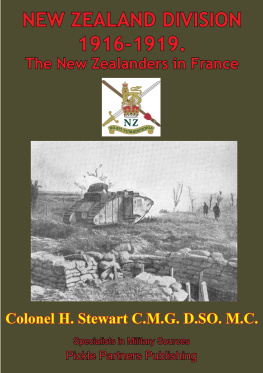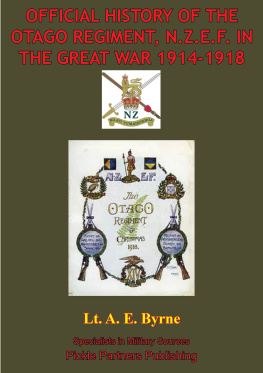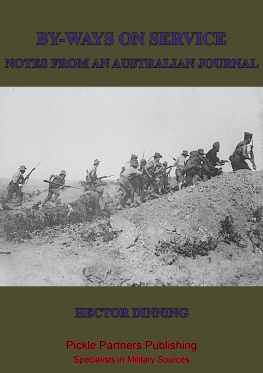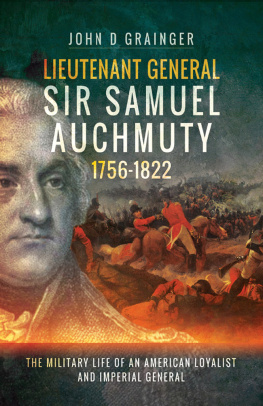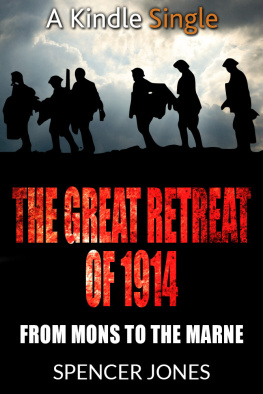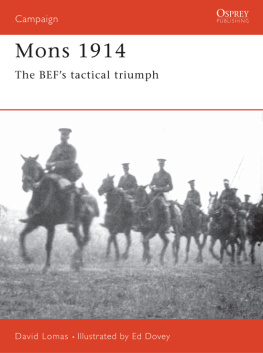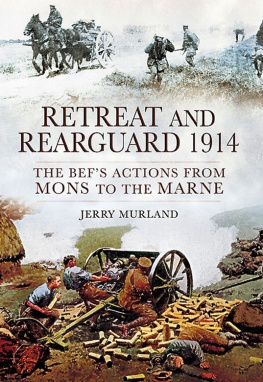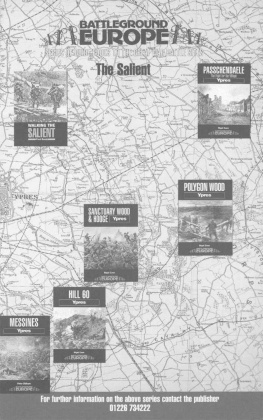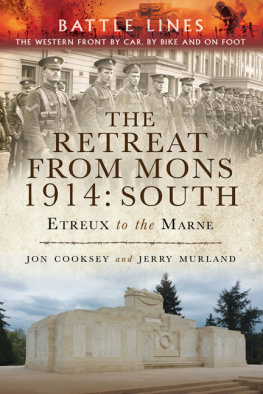

First published in Great Britain in 2009 by
Pen & Sword Military
an imprint of
Pen & Sword Books Ltd
47 Church Street
Barnsley
South Yorkshire
S70 2AS
Copyright Edward Melotte 2009
ISBN 978 1 84884 175 8
eISBN 9781844685141
The right of Edward Melotte to be identified as Author of the Introduction
and Editor of this edition has been asserted by him in accordance
with the Copyright, Designs and Patents Act 1988.
A CIP catalogue record for this book is
available from the British Library.
All rights reserved. No part of this book may be reproduced or transmitted in
any form or by any means, electronic or mechanical including photocopying,
recording or by any information storage and retrieval system, without
permission from the Publisher in writing.
Typeset in Sabon by
Phoenix Typesetting, Auldgirth, Dumfriesshire
Printed and bound in England by
MPG
Pen & Sword Books Ltd incorporates the imprints of Pen & Sword Aviation, Pen & Sword Maritime, Pen & Sword Military, Wharncliffe Local History, Pen & Sword Select, Pen & Sword Military Classics and Leo Cooper.
For a complete list of Pen & Sword titles please contact
PEN & SWORD BOOKS LIMITED
47 Church Street, Barnsley, South Yorkshire, S70 2AS, England
E-mail: enquiries@pen-and-sword.co.uk
Website: www.pen-and-sword.co.uk
Contents
1. Lieutenant Colonel The Hon Aubrey Herbert MP. Mrs M Melotte
2. Irish Guards officers in Wellington Barracks on the morning they marched off to War. Included in the group are Lieutenant The Hon T E Vesey (Aubrey Herberts cousin by marriage), standing, 3rd from left and Lieutenant H R Alexander (later Field Marshal Earl Alexander of Tunis) standing, 2nd from right. Regimental Headquarters Irish Guards
3. Irish Guardsmen preparing to leave Wellington Barracks en route to France, 12th August 1914. Aubrey Herbert stepped into the Battalions ranks as they marched out of the barracks, having had an Irish Guards uniform tailored for himself. Regimental Headquarters Irish Guards
4. On the move. France, August 1914. Taylor Library
5. Covering a flank. France 1914. Taylor Library
6. Royal Artillery in action, France 1914. Aubrey Herbert describes the passage of guns passing them at night with the sound of a great cataract. Taylor Library
7. Lancers, France 1914. Aubrey Herberts future son-in-law, Capt A E Grant served with the 9th Lancers during the Great War and was awarded a Military Cross and bar. Taylor Library
8. Irish Guardsmen in France. When Aubrey Herbert went in search of billets for the Guardsmen on arrival in France, the Quartermaster Lieutenant H Hickie commandeered a bicycle ..... Aubrey Herbert used a horse! Regimental Headquarters Irish Guards
9. Stores on the beach at Anzac Cove. Until North Beach was developed, the Cove was the main port of Anzac. All supplies, including water, were brought in using lighters and small fishing trawlers. Aubrey Herbert
10. A brief reprieve. ANZACs swimming at Anzac Cove. The beach was under regular fire from Turkish artillery and it is estimated that over 1000 men were killed or wounded on it (or in the water) during course of the Campaign. Aubrey Herbert
11. Stores coming ashore at Anzac Cove. One has to question how much use there was for bicycles? Aubrey Herbert
12. Unknown Colonel on a tour of the trenches at Gallipoli. Aubrey Herbert
13. Aubrey Herbert captures a relaxed moment at Gallipoli. Aubrey Herbert
14. A stark illustration of hardship of life in the trenches, Gallipoli 1915. Aubrey Herbert
15. ANZACs dining al fresco. In the background is the feature known as the Sphinx, an outcrop of the Sari Bair (Yellow Ridge range) that runs from the beach south of Anzac Cove to Koja Temen Tepe the highest point on that part of the Gallipoli Peninsula. Aubrey Herbert
Introduction
Mons, Anzac and Kut are the wartime diaries of an extraordinary man. Originally published anonymously as being By an MP, their author was the diplomat, politician, traveller, polyglot and poet Aubrey Herbert. He was thrown, by both opportunity and design, into the heart of some of the key battles and campaigns that define the Great War. A unique personal account of the events in which he found himself thrown, his diaries are very much an expression of himself: impetuous, romantic, generous of spirit and humour and ardent in search of adventure. A man of broad acquaintance, well informed, perceptive and very much a part of the Establishment, his observations give the reader a strong sense of the emotions of those in the face of battle: the excitement at Mons, the sense of those early days of the war as a game, the horror of Gallipoli and the disappointment of Kut. The diaries never had great success they were published in 1919, at a time when everyone wanted to forget the war and nothing could be more out of vogue than the spirit half-joy in life, half-readiness to die in which so many had first rushed to arms. The Nation was bitter, as was Herbert, feeling betrayed by politicians and simply wanting to forget.


